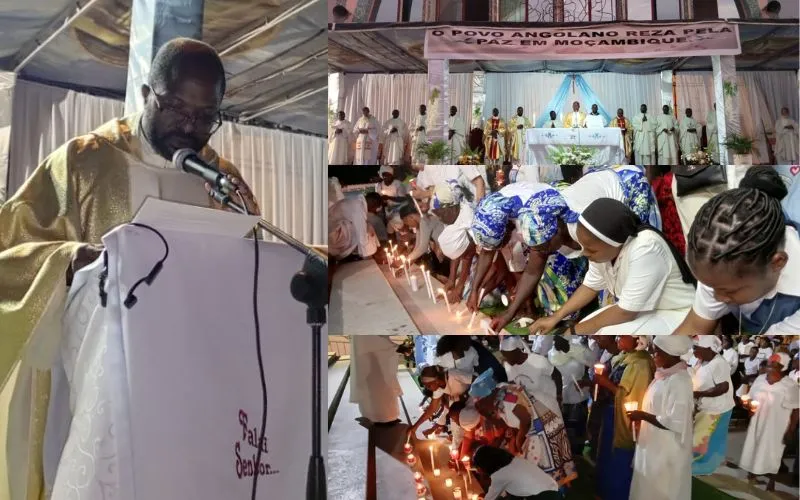Luanda, 05 January, 2025 / 10:55 pm (ACI Africa).
The Triduum Prayer initiative of the members of the Bishops' Conference of Angola and São Tomé and Príncipe (CEAST) for the people of God in Mozambique amid post-election violent conflicts has concluded with a call to end violence in the Southern African nation.
In his homily during the “Vigil for Peace” that concluded the three-day spiritual initiative, the Executive Secretary of the Catholic Commission for Justice and Peace (CCJP) of the Catholic Bishops’ Conference of Angola and São Tomé (CEAST) highlighted the far-reaching consequences of violence in Mozambique and across the globe.
“We pray for Mozambique caught in a spiral of violence. Violence breeds more violence, causing suffering, anguish, and forced migration. Violence is not the remedy for our fractured world,” Fr. Celestino Epalanga said during the January 3 Eucharistic celebration that was held at Our Lady of Fatima Parish of the Catholic Archdiocese of Luanda.
He added, “Responding to violence with violence leads to displacement, as seen with Mozambican refugees seeking safety in neighboring countries.”
Fr. Epalanga invited Angolans to reflect on the plight of Mozambique’s most vulnerable, including children, pregnant women, and the elderly.





